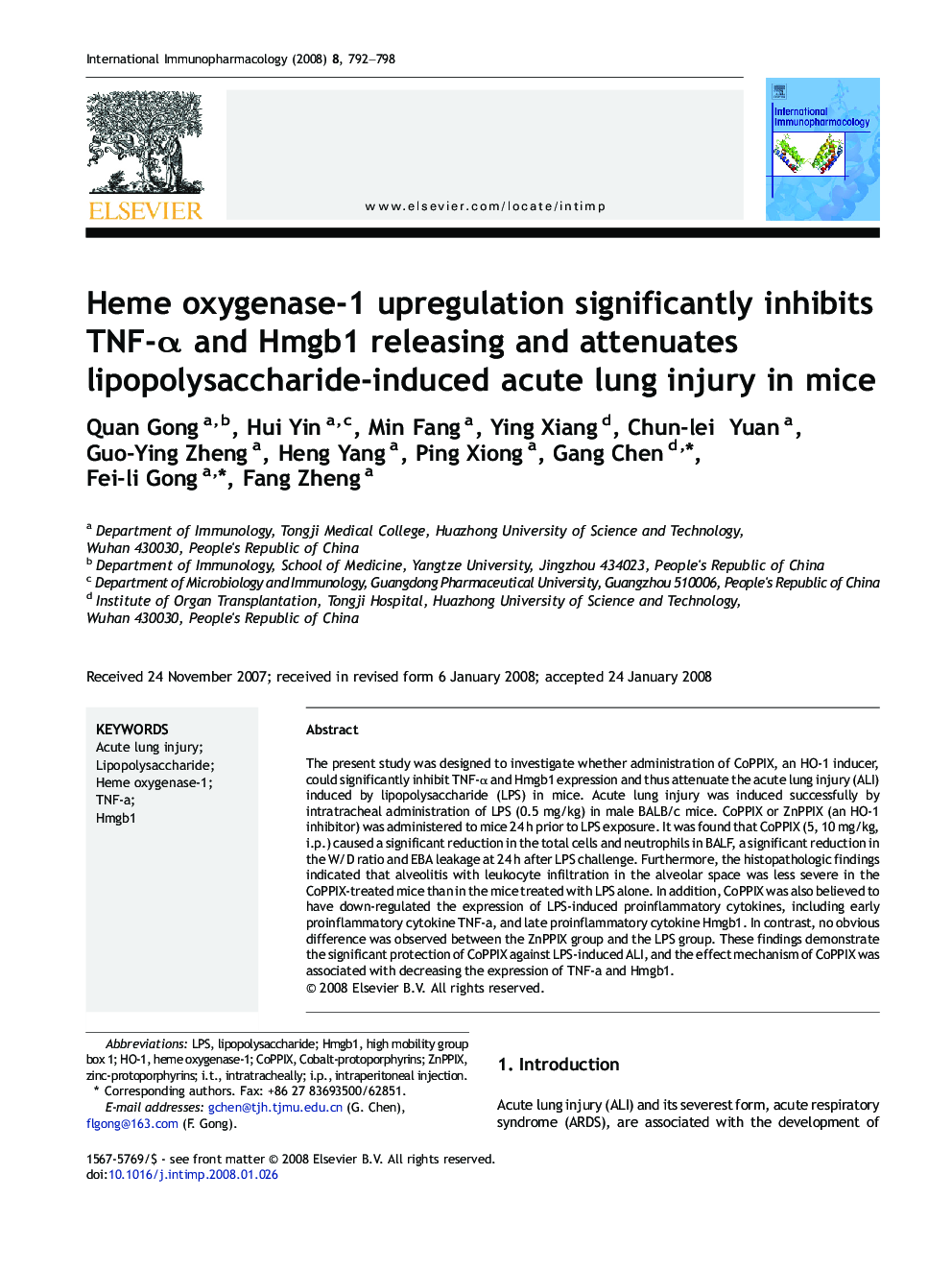| Article ID | Journal | Published Year | Pages | File Type |
|---|---|---|---|---|
| 2541509 | International Immunopharmacology | 2008 | 7 Pages |
The present study was designed to investigate whether administration of CoPPIX, an HO-1 inducer, could significantly inhibit TNF-α and Hmgb1 expression and thus attenuate the acute lung injury (ALI) induced by lipopolysaccharide (LPS) in mice. Acute lung injury was induced successfully by intratracheal administration of LPS (0.5 mg/kg) in male BALB/c mice. CoPPIX or ZnPPIX (an HO-1 inhibitor) was administered to mice 24 h prior to LPS exposure. It was found that CoPPIX (5, 10 mg/kg, i.p.) caused a significant reduction in the total cells and neutrophils in BALF, a significant reduction in the W/D ratio and EBA leakage at 24 h after LPS challenge. Furthermore, the histopathologic findings indicated that alveolitis with leukocyte infiltration in the alveolar space was less severe in the CoPPIX-treated mice than in the mice treated with LPS alone. In addition, CoPPIX was also believed to have down-regulated the expression of LPS-induced proinflammatory cytokines, including early proinflammatory cytokine TNF-a, and late proinflammatory cytokine Hmgb1. In contrast, no obvious difference was observed between the ZnPPIX group and the LPS group. These findings demonstrate the significant protection of CoPPIX against LPS-induced ALI, and the effect mechanism of CoPPIX was associated with decreasing the expression of TNF-a and Hmgb1.
